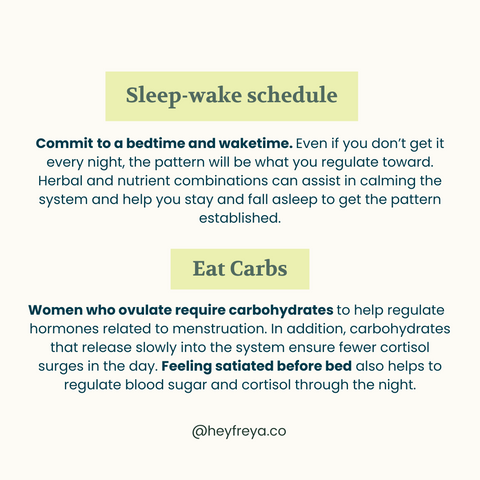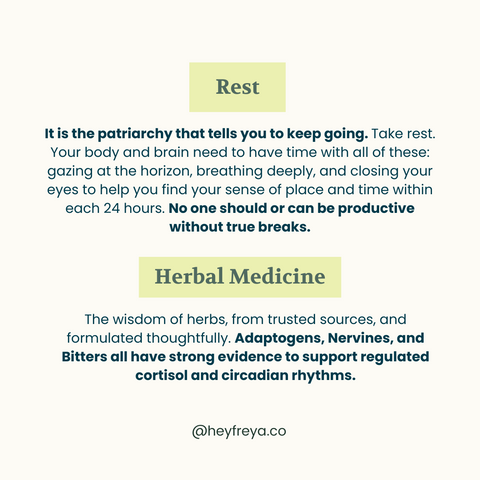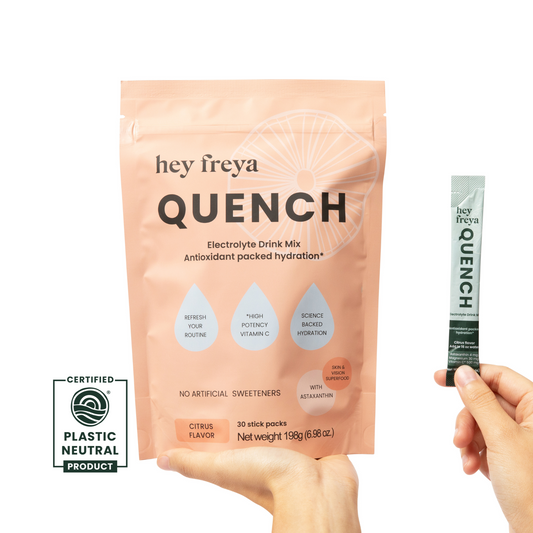You may recently have seen all the cortisol talk on TikTok and across social media and wondered why it feels like it came out of nowhere. Cortisol, our stress hormone, is actually meant to protect us in many ways, but when our cortisol levels are out of whack, it can trigger a myriad of symptoms that make life more difficult – like trouble sleeping, weight gain, and it can also lead to long-term issues related to our hormonal health.
However, not many people are aware of how cortisol works, how it can affect our lives, and how we can get to the root cause of some common cortisol-linked symptoms. So, we’re starting a series about how our hormones affect us in the long-term and short-term, with a focus on, you guessed it, cortisol.
The first topic we’re tackling in this series is perimenopause. Why? Because our cortisol levels today affect how we experience perimenopause and menopause in the years ahead. This may seem daunting. And even though so much of life’s stressors – the state of the world and everyday stressors like work, family life, and societal pressures – are often out of our control, there are some things you can do. We want you to feel empowered to take action, so let’s get into it.
What causes your cortisol levels to spike or crash and ultimately tip out of balance?
We hate to say it, but a big part of it is stress. It’s a scary word because stress feels like something we can’t change, and you shouldn’t have to feel like you need to rearrange your whole life. But there are ways to help manage how stress manifests in your body so that you feel well and can then make the lifestyle changes that allow you to live a more nourishing life.
First, here’s how stress affects your cortisol levels:
Your adrenal glands make estrogen so that when your ovaries no longer produce them, you have a reserve you can tap into. Adrenal glands also create progesterone – a forgotten hormone in menopause transition – and progesterone then creates cortisol when it’s needed. If we lead high-stress lifestyles, which many of us do today, cortisol is in high demand. When progesterone gets directed to create cortisol, it drains the reserve for both the estrogen and progesterone you need to get through life phases like perimenopause. This is why many doctors recommend hormone replacement when hot flashes and other symptoms occur – but they don’t explain why.
It’s because our reserves have been drained as a result of stress.
The good news is, with a bit of preparation, you may not find yourself in a situation of drained reserves.
Understand your rhythm
Learning how your cortisol levels fluctuate throughout the day can give you insight into where your prominent stressors may lie. You can get this sort of understanding through a cortisol test, which is offered by functional medicine and naturopathic doctors. Once you better understand your cortisol levels, you can take lifestyle and dietary steps to regulate your circadian rhythm and stress response.
You can also take a cortisol test directly with hey freya, available on our website here.
Manage your symptoms of stress today
While people often preach lifestyle changes in order to manage stress, we all know it’s not that easy. We bear many burdens as women and we have to already feel some level of good in order to make long-term lifestyle changes. This is where herbs and nutrients come in. They can offer a hand to get you out of the hole that we often fall down as a result of burnout and stress. By supplementing with the appropriate dosages and combinations of certain herbs and vitamins, you can begin to feel well again.
A few of the top supplements we recommend for stress management are below:
- Ashwagandha – helps regulate cortisol levels
- Rhodiola – used to build energy
- Omega 3s – lowers inflammation and cortisol levels
Look for vitamins or supplement products that contain these, but keep in mind that while a little is good, a lot is not always better. It takes experienced wisdom to know how much to take to gain benefit without harm. That's why, at hey freya, our supplements are doctor-formulated by our co-founder Thara Vayali, who is also an herbalist and nutritionist, so you know you are getting the most effective dose.
Build up your reserve for the future
It is possible to build up stores without hormone replacement therapy, but that starts years before you go through menopause. It starts with gaining an understanding of your stressors, as mentioned above, and taking action on some small lifestyle changes that can make a big difference.


At the end of the day, the most important thing you can do is take care of yourself first, and that looks different for everyone. Consider what information you have and where you need additional insight and resources to make small changes until you feel well enough to make the lifestyle changes you currently don’t have the energy to take on. It’s important we take action but we can rarely do that without truly reliable information, and women have too often been left in the dark when it comes to their health. We’re hoping to change that.
Thank you for being on this journey with us. If you have questions or comments, reach out to hey@heyfreya.co.




